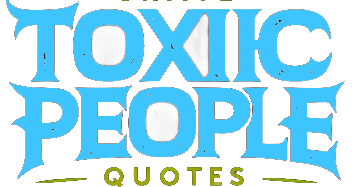The tale of coffee is a rich and intricate one, spanning centuries and continents, shaped by the forces of colonization, trade, and cultural exchange. The journey of this beloved beverage from its origins in Ethiopia to becoming a global commodity is one that encapsulates the complexities of our shared history. In this article, we delve into the history of coffee production through the lens of imperialism, examining how colonial powers and economic interests have influenced the cultivation, trade, and consumption of coffee around the world.
Origins of Coffee: The Ethiopian Legacy
Coffee’s story begins in the ancient forests of Ethiopia, where legend has it that a goatherd named Kaldi discovered the energizing effects of coffee beans after his flock consumed them. This serendipitous encounter with the Coffea plant sparked a tradition of coffee consumption that would eventually spread across the globe. The ethereal beauty of the Ethiopian highlands provided the ideal environment for coffee cultivation, with the region’s cool temperatures and abundant rainfall nurturing the growth of these precious beans.
Coffee and Colonialism: The European Expansion
The age of exploration in the 15th century brought European powers into contact with the coffee-growing regions of Africa and the Middle East. Colonial empires, seeking to capitalize on the lucrative trade in coffee, established plantations in regions such as Latin America and Southeast Asia. The cultivation of coffee on a mass scale was made possible by the exploitation of indigenous labor and the forced migration of African slaves to work on plantations in the Americas.
Rise of Coffee Houses and Global Trade
The emergence of coffee houses in Europe during the 17th century transformed the consumption of coffee into a social ritual, where intellectual discussions and business dealings took place over steaming cups of this exotic beverage. The Ottoman Empire played a crucial role in popularizing coffee in Europe, with the first coffeehouse opening in Istanbul in the 16th century. The demand for coffee grew exponentially, leading to the establishment of trade routes that crisscrossed the globe, connecting producers in Africa and Asia with consumers in Europe and America.
Industrialization and Coffee Production
The industrial revolution in the 18th and 19th centuries revolutionized the production and distribution of coffee, with mechanized farming techniques and railway networks enabling the mass production of coffee beans. Colonial powers such as Britain and France dominated the global coffee trade, imposing their economic interests on producing countries and extracting profits at the expense of local communities. The development of coffee plantations in countries like Brazil and Vietnam transformed these regions into major exporters of coffee, shaping the global coffee market as we know it today.
The Coffee Crisis and Sustainable Alternatives
In the 20th century, the coffee industry faced a crisis characterized by fluctuating prices and unstable markets, leading to widespread poverty among coffee farmers in developing countries. The dominance of large corporations in the coffee trade marginalized smallholder farmers and undermined the sustainability of coffee production. In response to these challenges, initiatives such as Fair Trade and organic certification have emerged to promote ethical and environmentally friendly practices in the coffee industry, ensuring that farmers receive a fair price for their labor and protecting the environment for future generations.
Coffee Culture and Identity
Coffee has become more than just a beverage; it is a cultural symbol that reflects social norms and values across different societies. From the espresso culture of Italy to the coffee ceremonies of Ethiopia, each region has developed its unique traditions around coffee consumption. The global popularity of coffee chains such as Starbucks has further standardized the coffee experience, offering a taste of Western coffee culture to consumers around the world. However, the resurgence of third-wave coffee movements emphasizes the diversity and craftsmanship of coffee, celebrating the artisanal and local aspects of coffee production.
Conclusion
The history of coffee production is a testament to the interconnectedness of our world, shaped by the forces of imperialism, trade, and cultural exchange. From its humble origins in Ethiopia to its global prominence today, coffee has woven itself into the fabric of society, reflecting the complex and contradictory nature of our shared history. As we continue to enjoy our daily cup of coffee, let us pause to reflect on the stories and struggles behind this beloved beverage, acknowledging the legacy of imperial extraction that lies within every sip.
Frequently Asked Questions (FAQs)
1. What is the history of coffee production?
Coffee production dates back to ancient Ethiopia, where a goatherd named Kaldi discovered the energizing effects of coffee beans. The spread of coffee cultivation was shaped by colonial powers and trade networks, leading to its global prominence today.
2. How did colonialism influence coffee production?
Colonial powers established plantations in regions like Latin America and Southeast Asia, exploiting indigenous labor and African slaves to cultivate coffee on a mass scale. This history of exploitation continues to impact coffee-producing countries today.
3. What are some sustainable alternatives in the coffee industry?
Initiatives such as Fair Trade and organic certification promote ethical and environmentally friendly practices in the coffee industry, ensuring that farmers receive fair compensation for their labor and protecting the environment.
4. How has coffee culture evolved over time?
Coffee culture has evolved from traditional ceremonies in Ethiopia and Europe to the standardized experience offered by global coffee chains like Starbucks. The third-wave coffee movement emphasizes diversity and craftsmanship in coffee production.
5. What are the social and cultural implications of coffee consumption?
Coffee consumption has become a social ritual that reflects social norms and values across different societies. It is a cultural symbol that connects people and communities through shared experiences and traditions.

